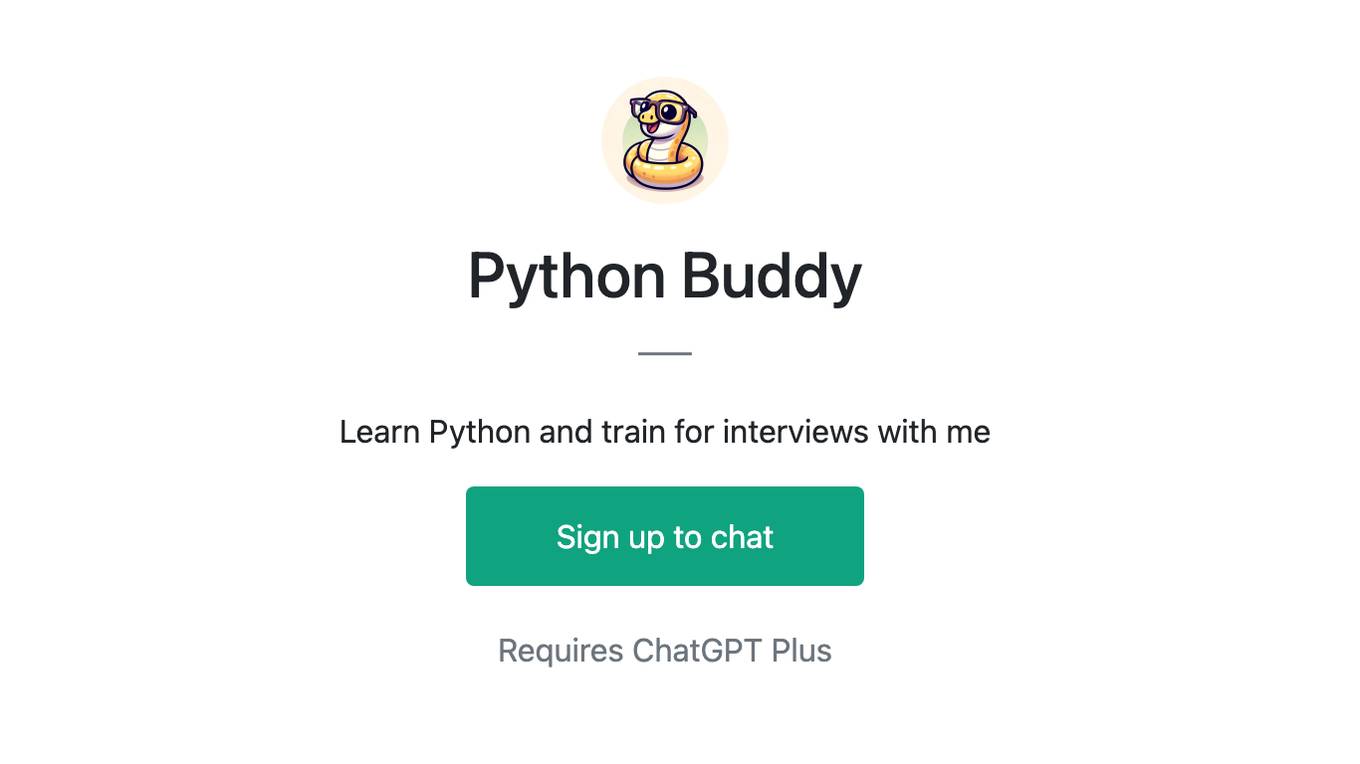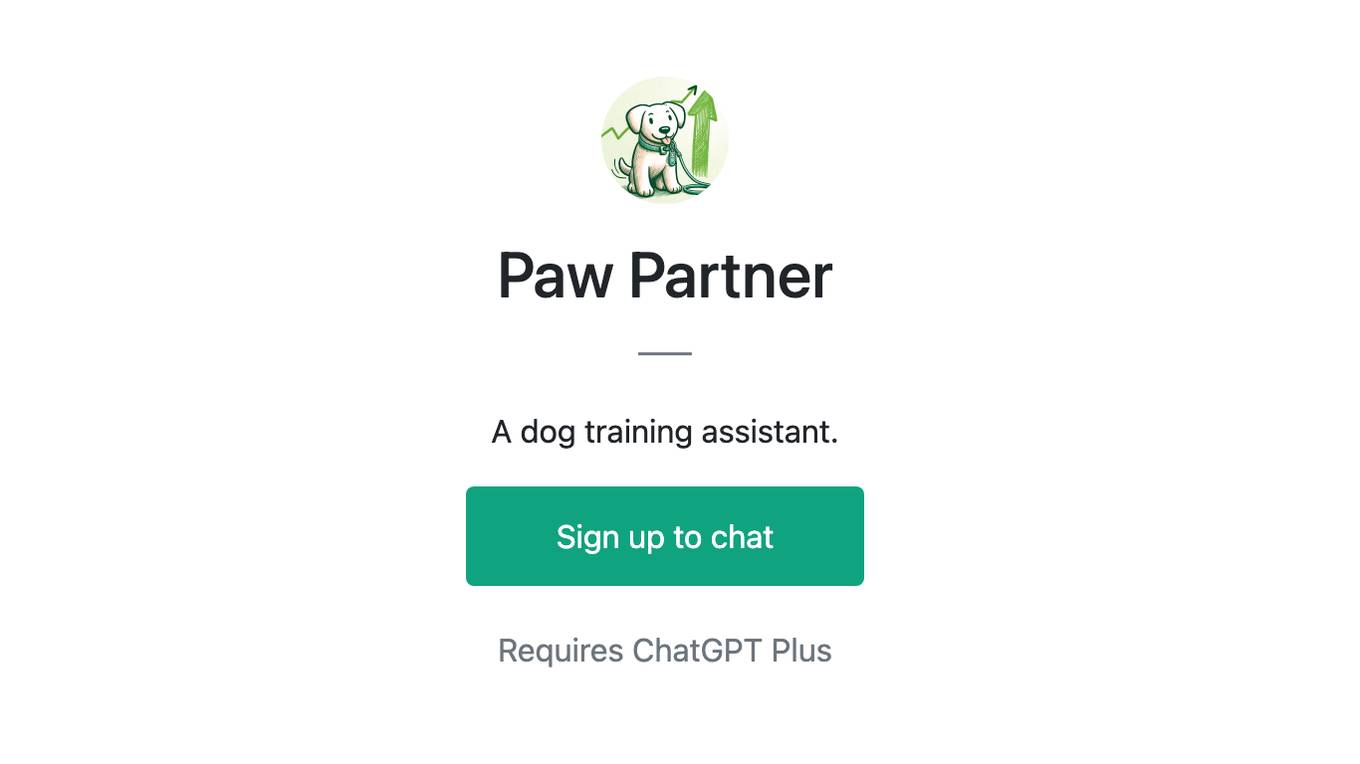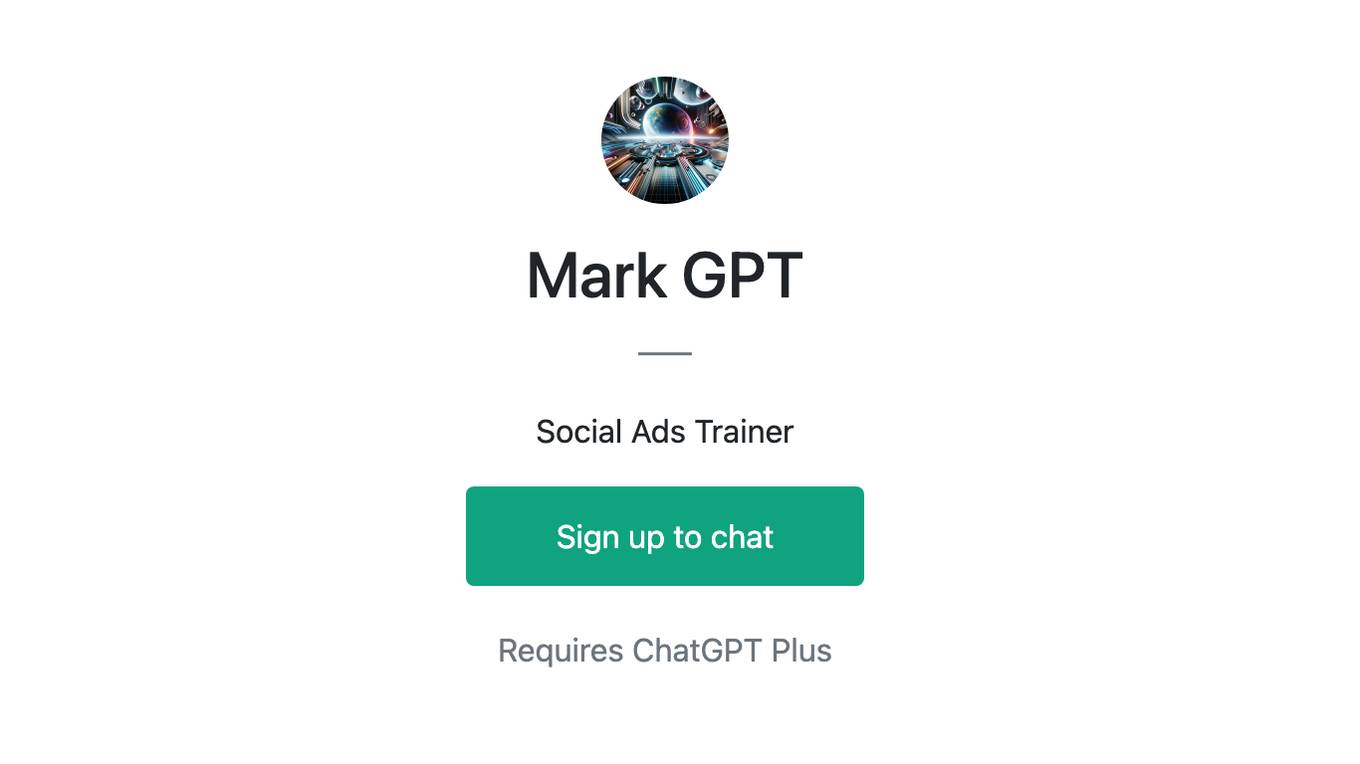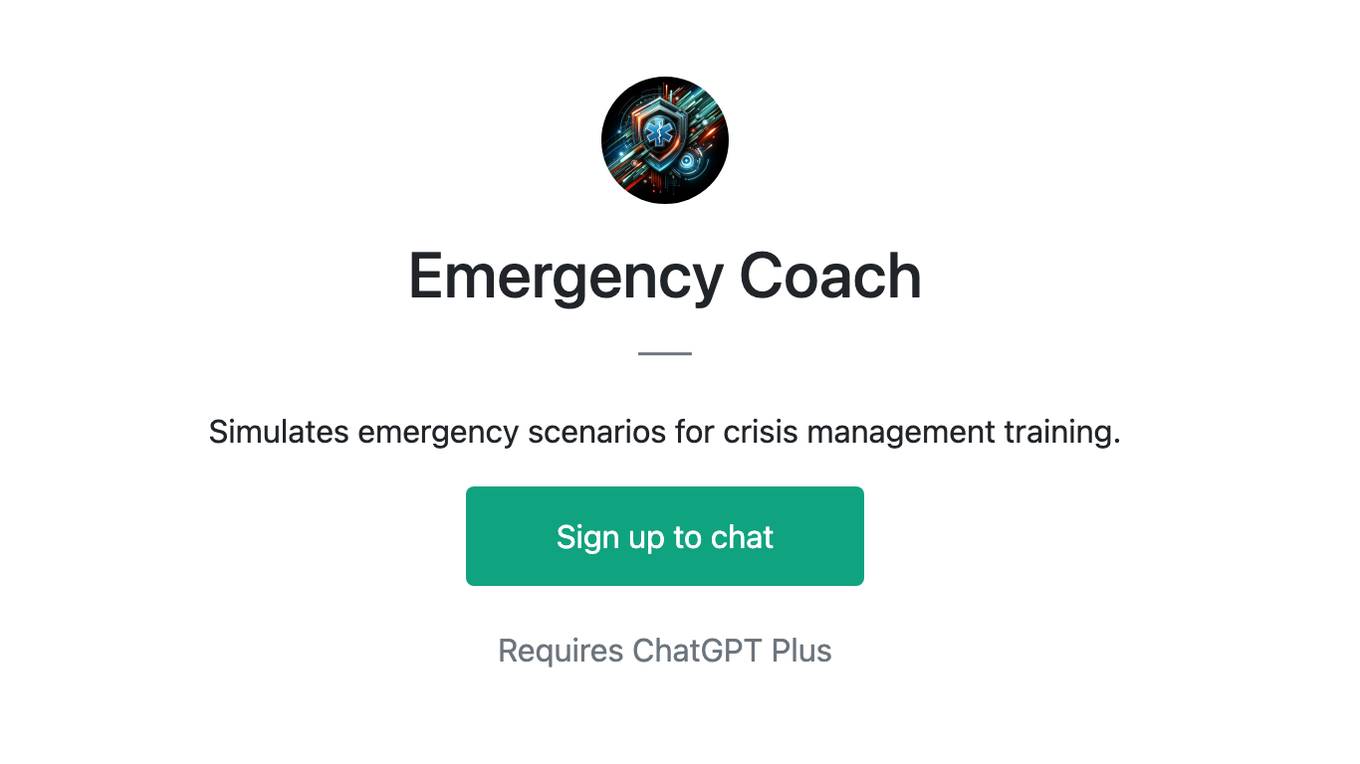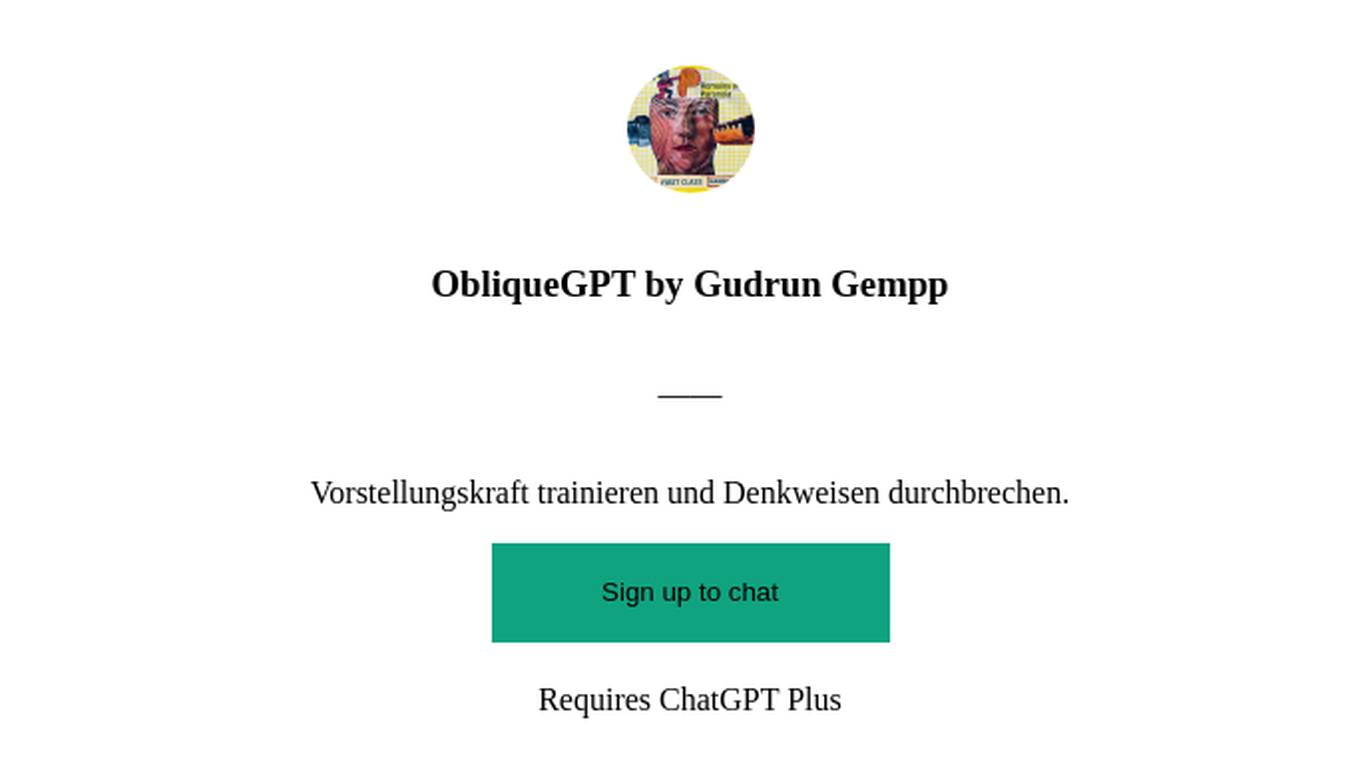Best AI tools for< Train Robot Football Tricks >
20 - AI tool Sites
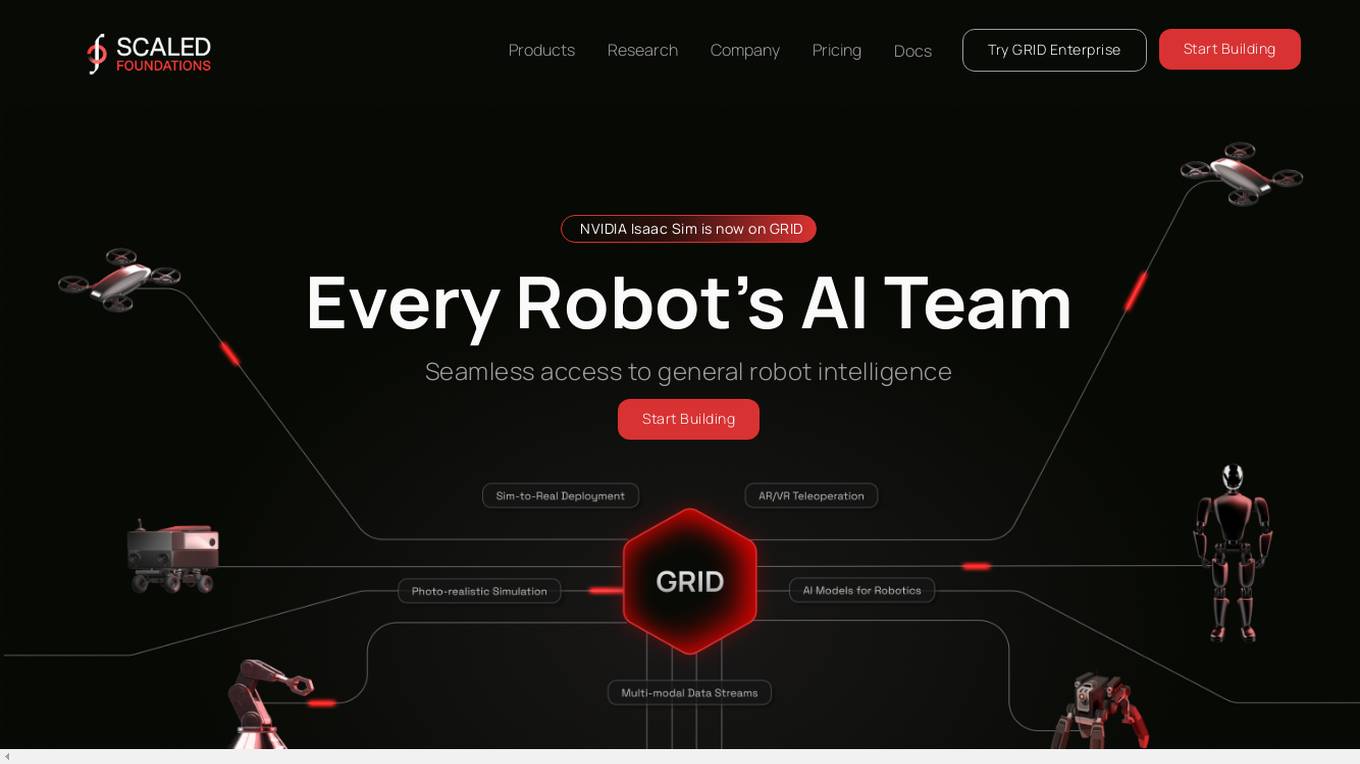
Scaled Foundations
Scaled Foundations is an AI application that offers a web-based platform for developing, training, validating, and deploying intelligent robots faster. It provides both Open GRID, a platform for general robot intelligence development, and GRID Enterprise, a packaged version for a scalable, customizable, and private robot training experience. The application aims to democratize advanced robot AI development by integrating technologies like Isaac Sim and AirSim, enabling users to accelerate their research and build robotic enterprises more efficiently.
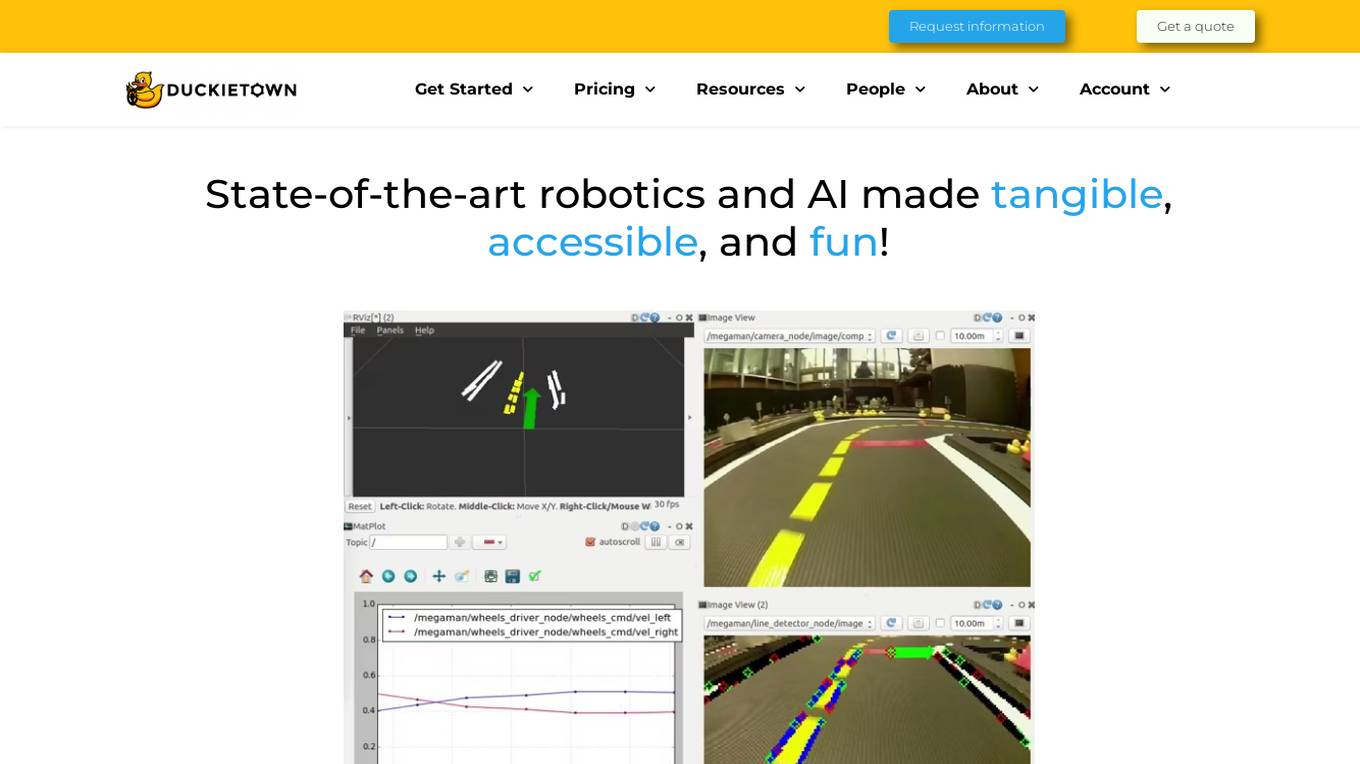
Duckietown
Duckietown is a platform for delivering cutting-edge robotics and AI learning experiences. It offers teaching resources to instructors, hands-on activities to learners, an accessible research platform to researchers, and a state-of-the-art ecosystem for professional training. Duckietown's mission is to make robotics and AI education state-of-the-art, hands-on, and accessible to all.
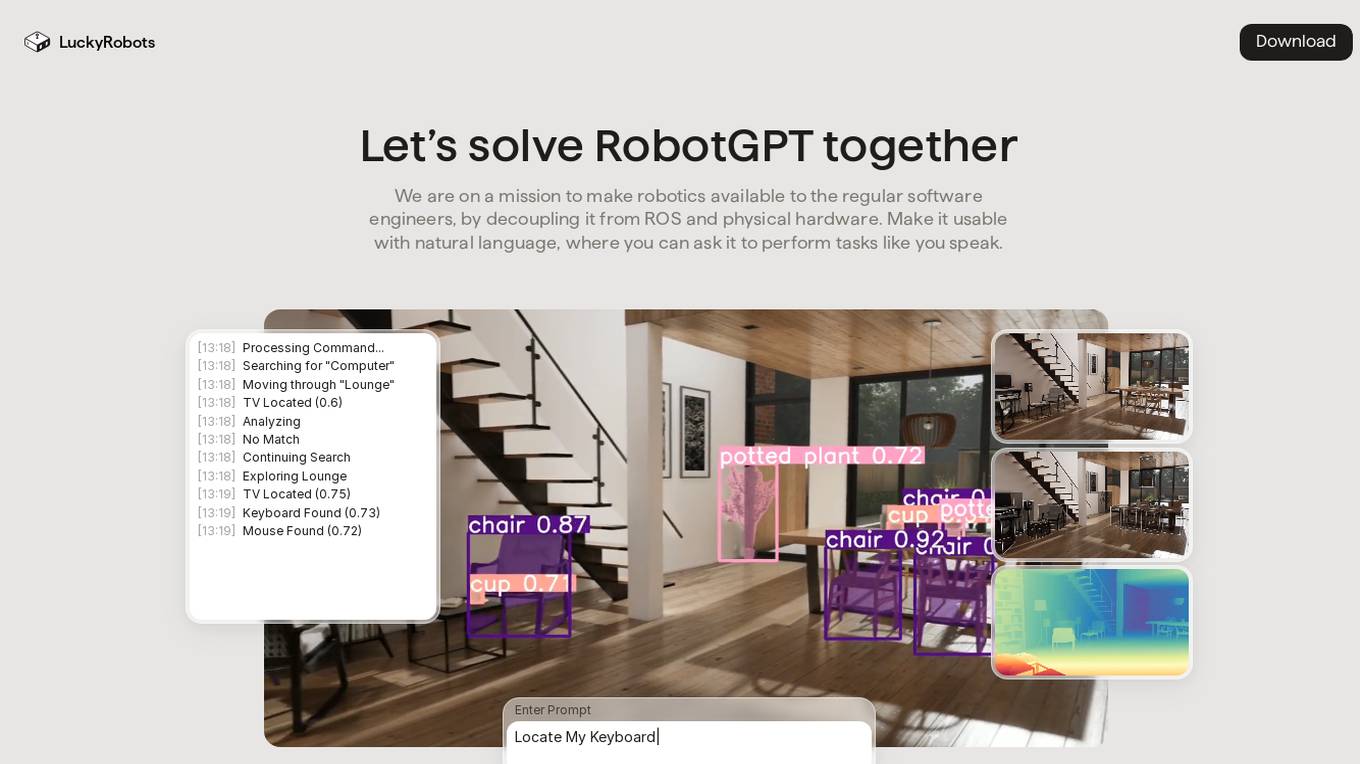
LuckyRobots
LuckyRobots is an AI tool designed to make robotics accessible to software engineers by providing a simulation platform for deploying end-to-end AI models. The platform allows users to interact with robots using natural language commands, explore virtual environments, test robot models in realistic scenarios, and receive camera feeds for monitoring. LuckyRobots aims to train AI models on real-world simulations and respond to natural language inputs, offering a user-friendly and innovative approach to robotics development.

Global Blockchain Show
The Global Blockchain Show is an annual event that brings together experts and enthusiasts in the blockchain and AI industries. The event features a variety of speakers, workshops, and exhibitions, and provides a platform for attendees to learn about the latest developments in these fields. The 2024 Global Blockchain Show will be held in Dubai, UAE, from April 16-17. The event will feature a keynote address from Sophia, the world's most famous humanoid robot, as well as presentations from other leading experts in the blockchain and AI fields. Attendees will also have the opportunity to network with other professionals in the industry and learn about the latest products and services from leading companies. The Global Blockchain Show is a must-attend event for anyone interested in the latest developments in blockchain and AI.
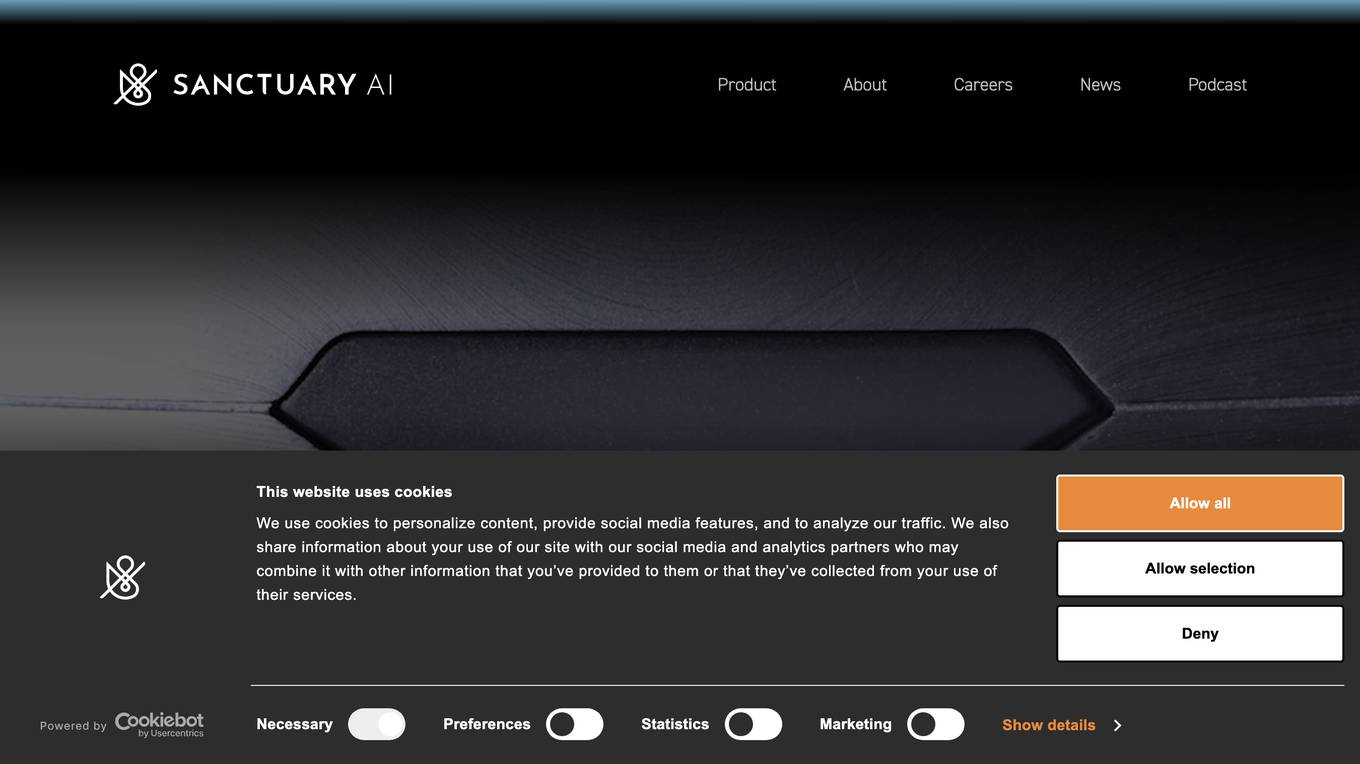
Sanctuary
Sanctuary Cognitive Systems Corporation is a company that develops and manufactures general-purpose robots. Their flagship product, Phoenix™, is the world's first humanoid general-purpose robot powered by Carbon™, their pioneering AI control system. Phoenix™ is designed for work and is the only general-purpose robot featured in TIME's Best Inventions 2023. Sanctuary's robots are remotely piloted or supervised by people and are designed to both train and work alongside them. When instructed to do so, their robots will use their own built-in autonomous control system to observe, assess, and act on tasks in an efficient and prosperous manner.
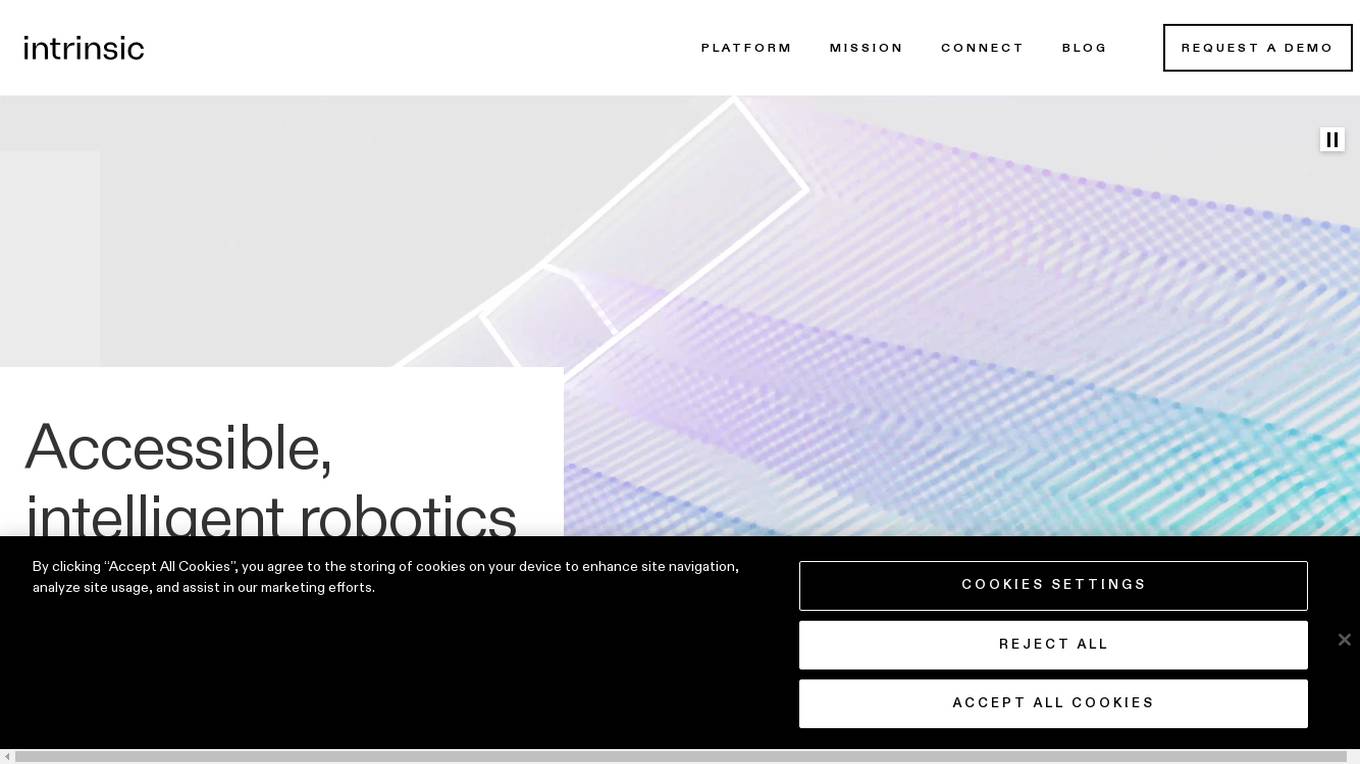
Intrinsic
Intrinsic is an AI platform that focuses on building the next generation of intelligent automation, making robotics more accessible and valuable for developers and businesses. The platform offers a range of capabilities and skills to develop intelligent solutions, from perception to motion planning and sensor-based controls. Intrinsic aims to simplify the programming, usage, and innovation of robots, enabling them to become usable tools for millions of users.
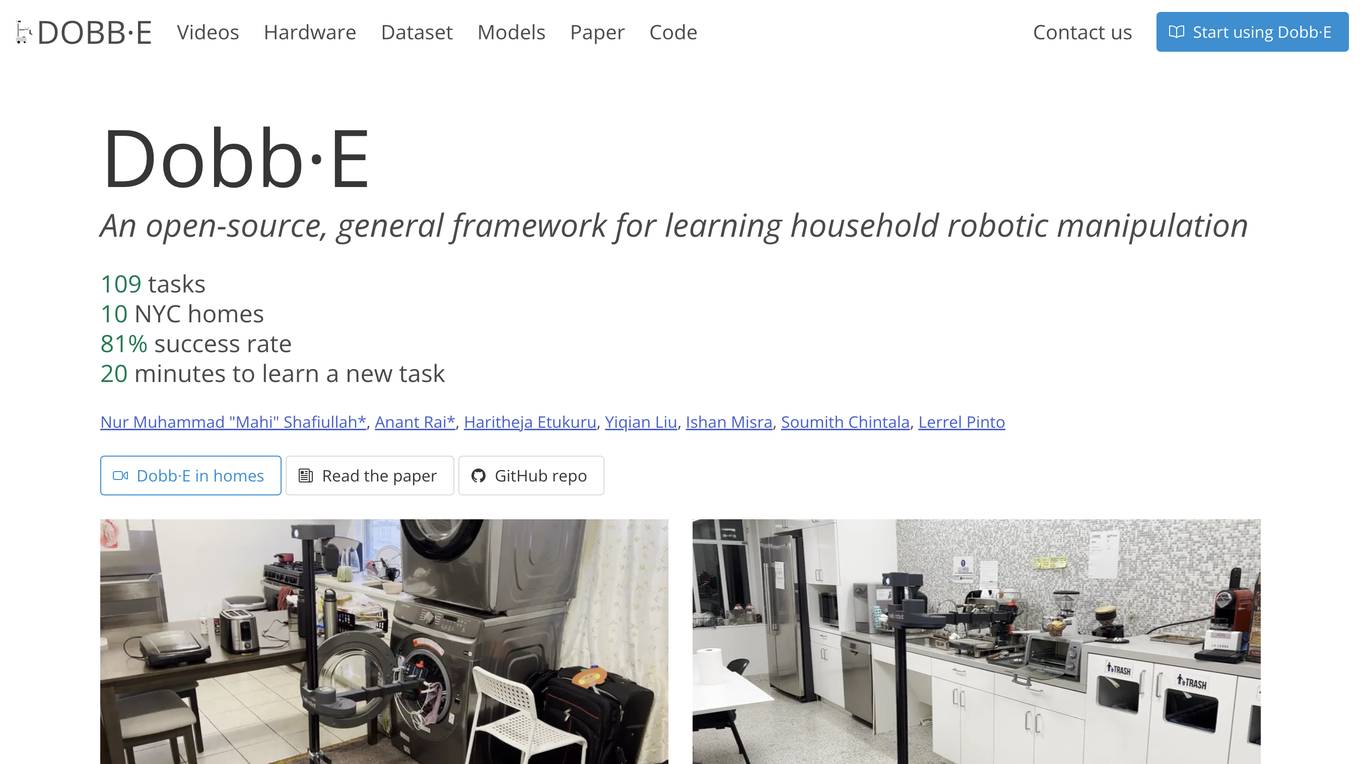
Dobb·E
Dobb·E is an open-source, general framework for learning household robotic manipulation. It aims to create a 'generalist machine' for homes, a domestic assistant that can adapt and learn various tasks cost-effectively. Dobb·E can learn a new task with just five minutes of demonstration, achieving an 81% success rate in 10 NYC homes. The system is designed to accelerate research on home robots and eventually enable robot butlers in every home.
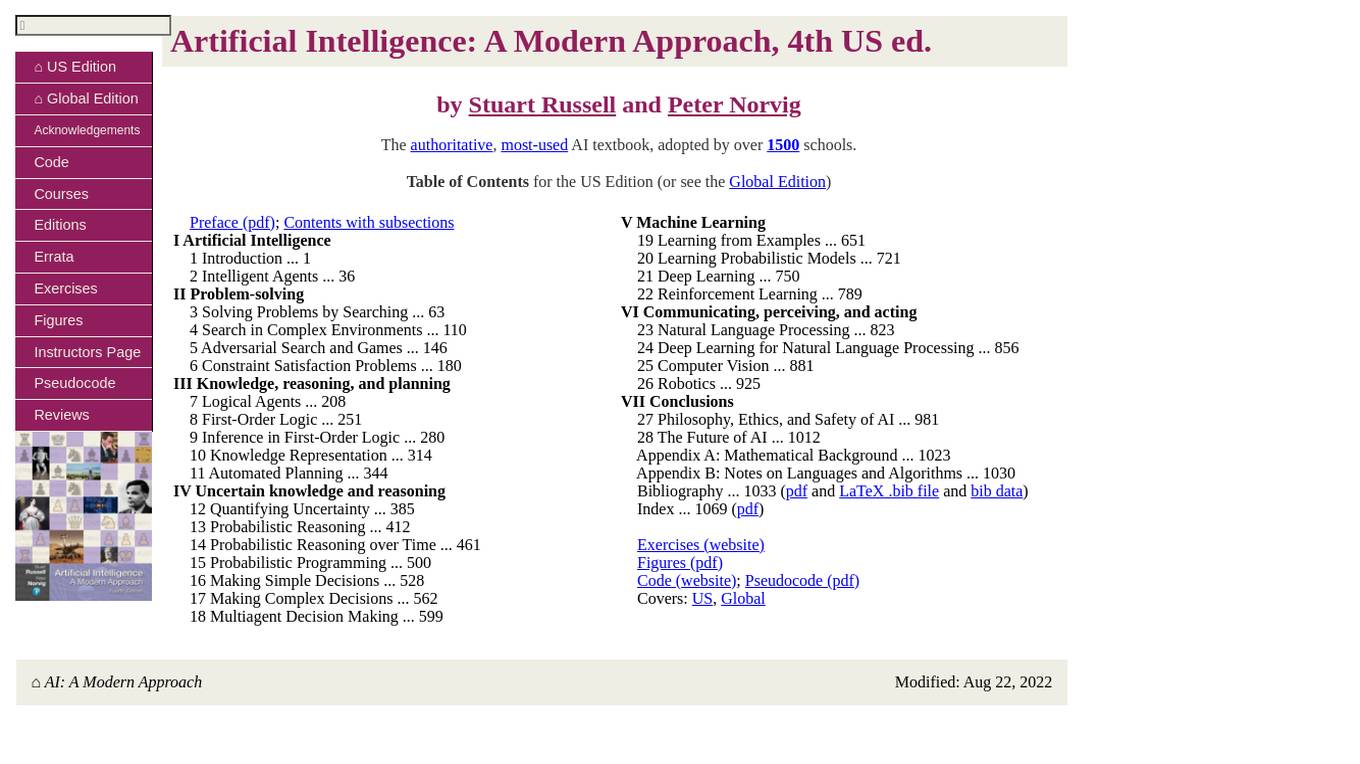
Artificial Intelligence: A Modern Approach, 4th US ed.
Artificial Intelligence: A Modern Approach, 4th US ed. is the authoritative, most-used AI textbook, adopted by over 1500 schools. It covers the entire spectrum of AI, from the fundamentals to the latest advances. The book is written in a clear and concise style, with a wealth of examples and exercises. It is suitable for both undergraduate and graduate students, as well as professionals in the field of AI.
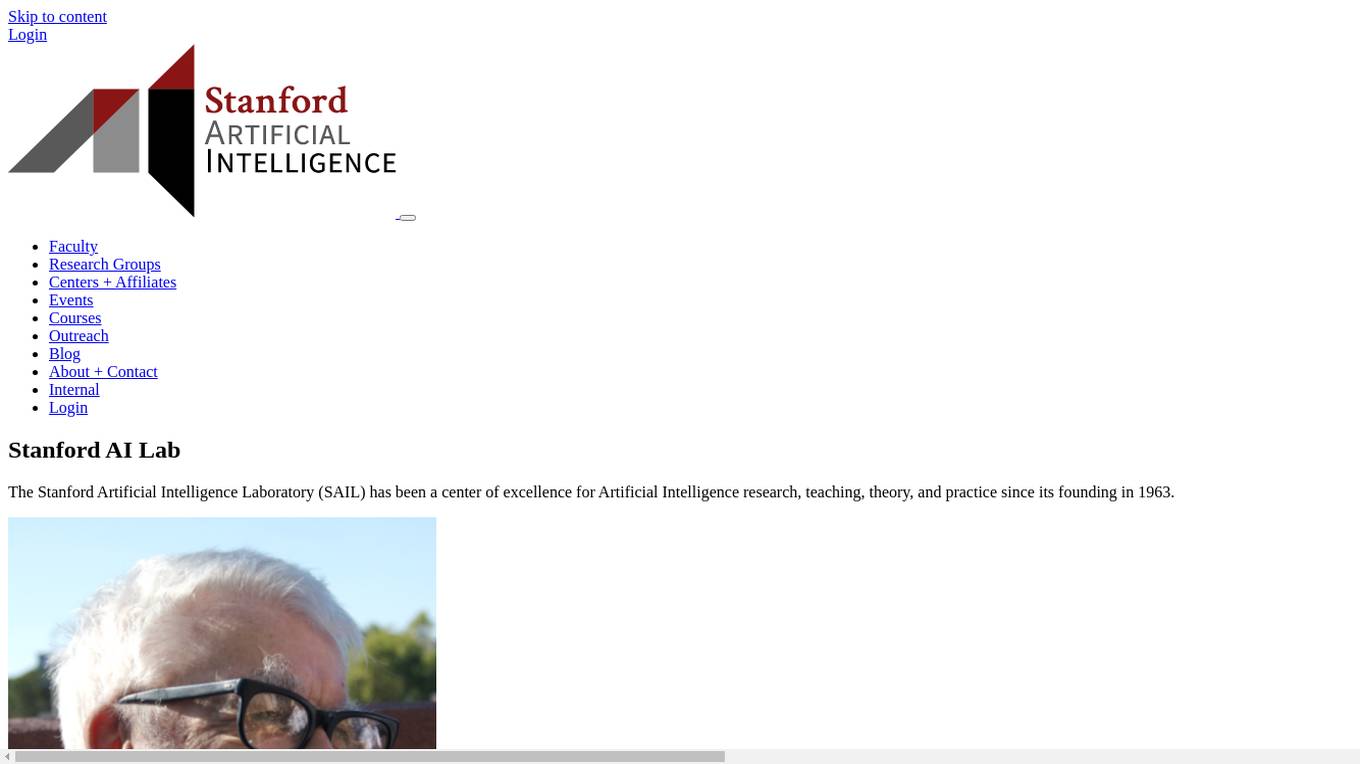
Stanford Artificial Intelligence Laboratory
The Stanford Artificial Intelligence Laboratory (SAIL) is a center of excellence for Artificial Intelligence research, teaching, theory, and practice since its founding in 1963. SAIL faculty and students are committed to developing the theoretical foundations of AI, advancing the state-of-the-art in AI technologies, and applying AI to address real-world problems. SAIL is a vibrant and collaborative community of researchers, students, and staff who are passionate about AI and its potential to make the world a better place.
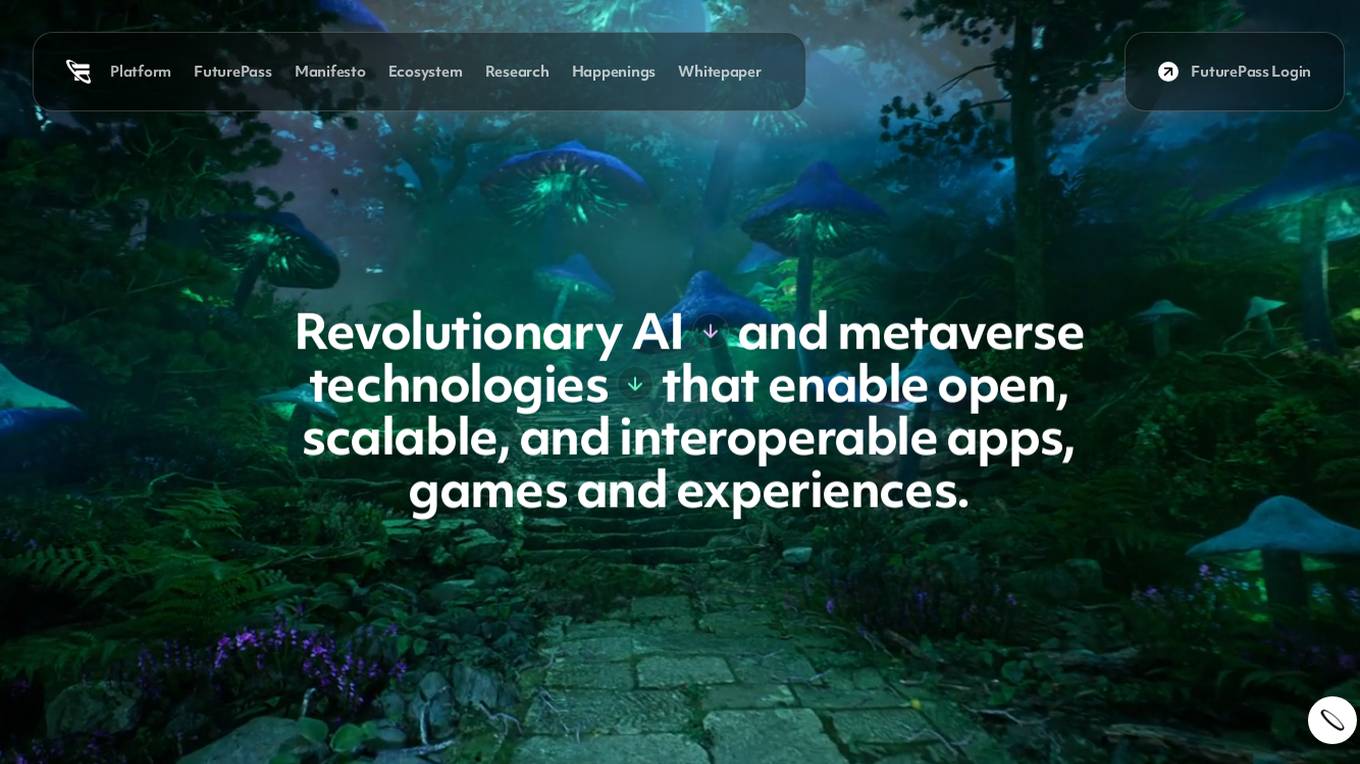
Futureverse
Futureverse is a revolutionary AI and metaverse technology platform that empowers developers to create open, scalable, and interoperable apps, games, and experiences. The platform includes tools like FuturePass smart wallet SDK for user onboarding, D.O.T. Asset Pipeline for instant 3D character generation, AI Gaming Platform for strategy sports games, and more. Futureverse also leads the development of The Root Network, a modular toolkit for scalable and secure metaverse experiences. The platform enables users to own, train, and trade unique artificial intelligence via digital Brains, revolutionizing content creation and world building.

IBM Watsonx
IBM Watsonx is an enterprise studio for AI builders. It provides a platform to train, validate, tune, and deploy AI models quickly and efficiently. With Watsonx, users can access a library of pre-trained AI models, build their own models, and deploy them to the cloud or on-premises. Watsonx also offers a range of tools and services to help users manage and monitor their AI models.

Outlier AI
Outlier AI is a platform that connects subject matter experts to help build the world's most advanced Generative AI. It allows experts to work on various projects from generating training data to evaluating model performance. The platform offers flexibility, allowing contributors to work from home on their own schedule. Outlier AI aims to redefine how AI learns by leveraging the expertise of domain specialists across different fields.
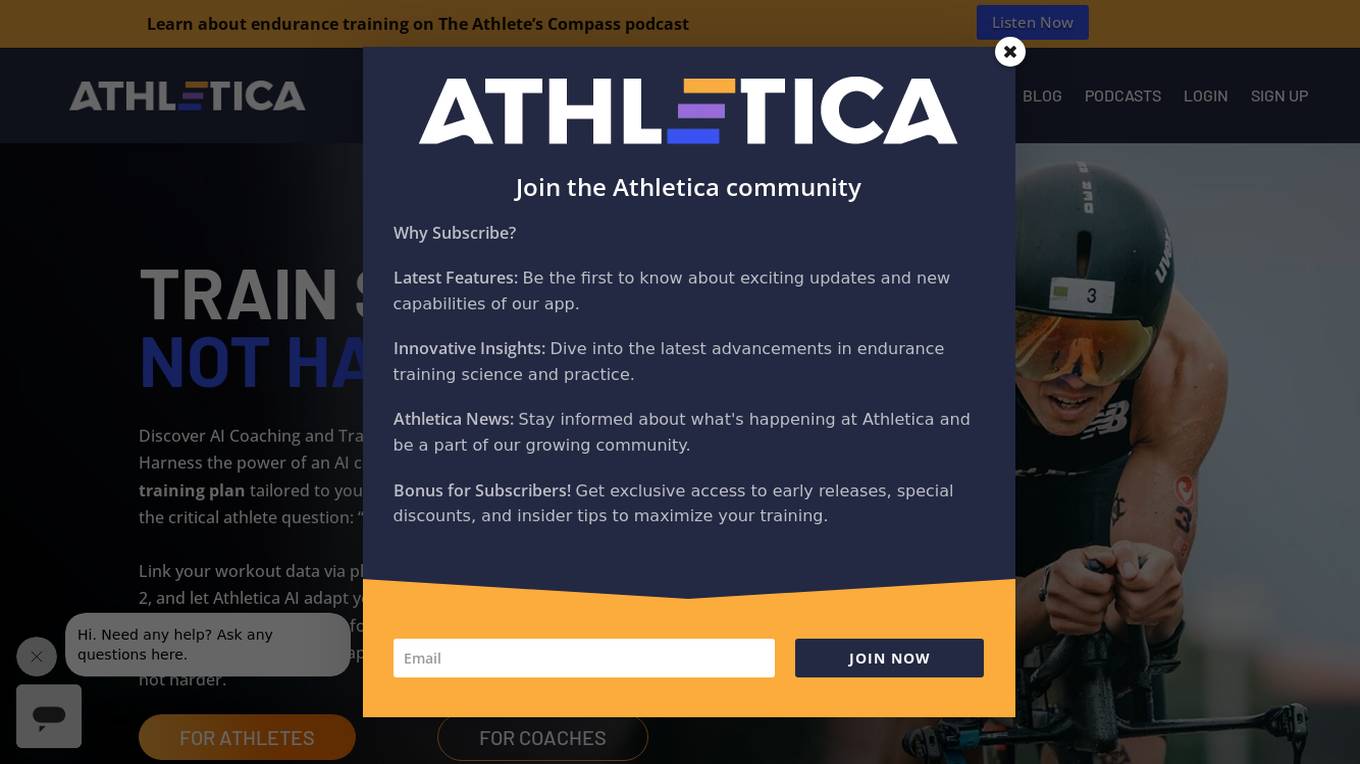
Athletica AI
Athletica AI is an AI-powered athletic training and personalized fitness application that offers tailored coaching and training plans for various sports like cycling, running, duathlon, triathlon, and rowing. It adapts to individual fitness levels, abilities, and availability, providing daily step-by-step training plans and comprehensive session analyses. Athletica AI integrates seamlessly with workout data from platforms like Garmin, Strava, and Concept 2 to craft personalized training plans and workouts. The application aims to help athletes train smarter, not harder, by leveraging the power of AI to optimize performance and achieve fitness goals.

Backend.AI
Backend.AI is an enterprise-scale cluster backend for AI frameworks that offers scalability, GPU virtualization, HPC optimization, and DGX-Ready software products. It provides a fast and efficient way to build, train, and serve AI models of any type and size, with flexible infrastructure options. Backend.AI aims to optimize backend resources, reduce costs, and simplify deployment for AI developers and researchers. The platform integrates seamlessly with existing tools and offers fractional GPU usage and pay-as-you-play model to maximize resource utilization.
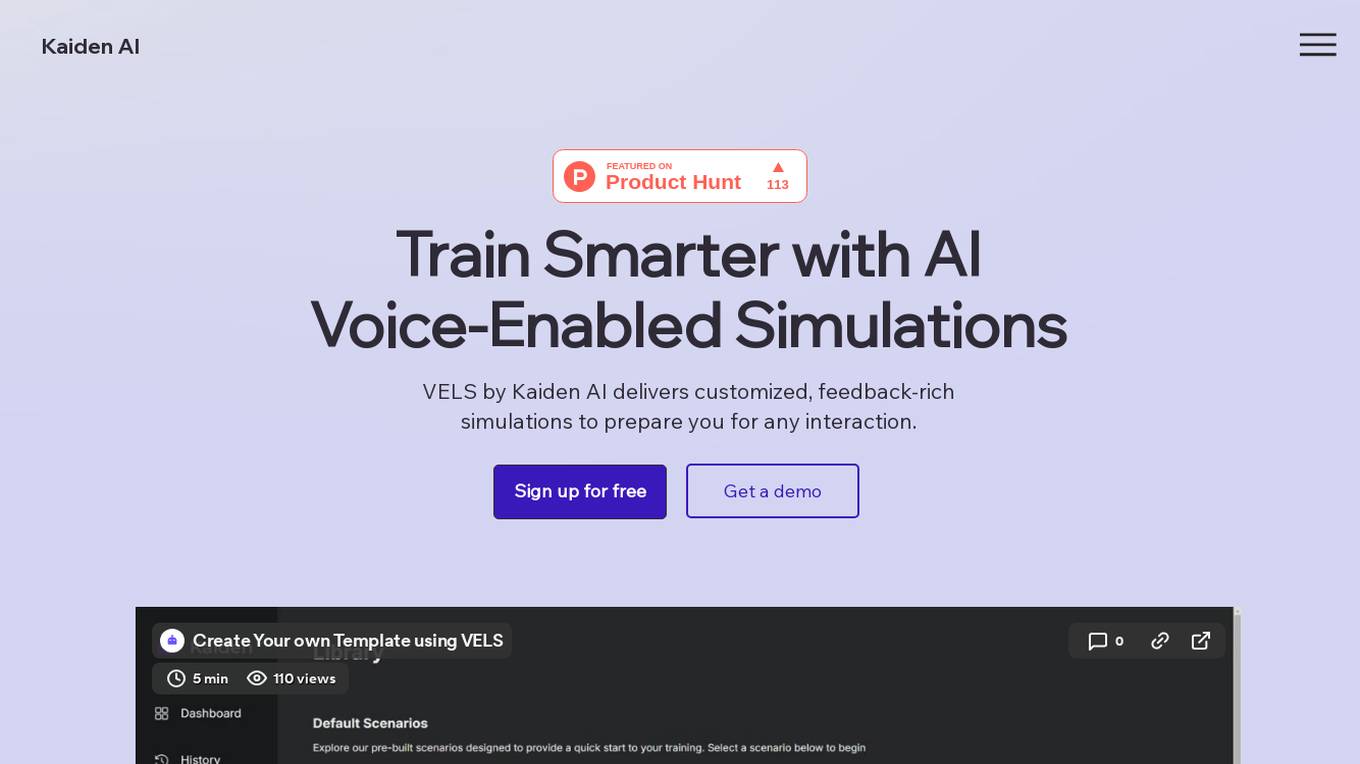
Kaiden AI
Kaiden AI is an AI-powered training platform that offers personalized, immersive simulations to enhance skills and performance across various industries and roles. It provides feedback-rich scenarios, voice-enabled interactions, and detailed performance insights. Users can create custom training scenarios, engage with AI personas, and receive real-time feedback to improve communication skills. Kaiden AI aims to revolutionize training solutions by combining AI technology with real-world practice.
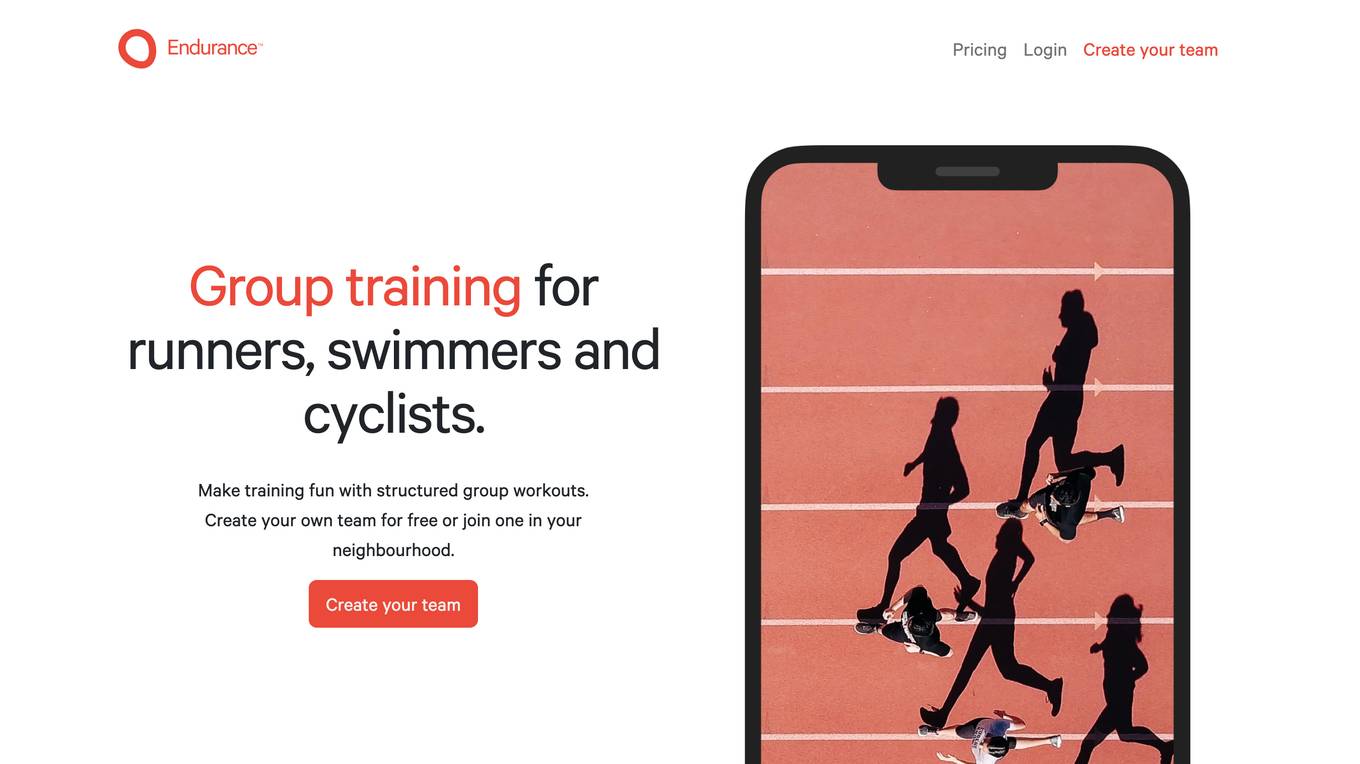
Endurance
Endurance is a platform designed for runners, swimmers, and cyclists to engage in group training activities with friends or local communities. Users can create or join teams, share structured workouts, and benefit from collective motivation and accountability. The platform aims to make training fun and effective by leveraging the power of group workouts and social connections.
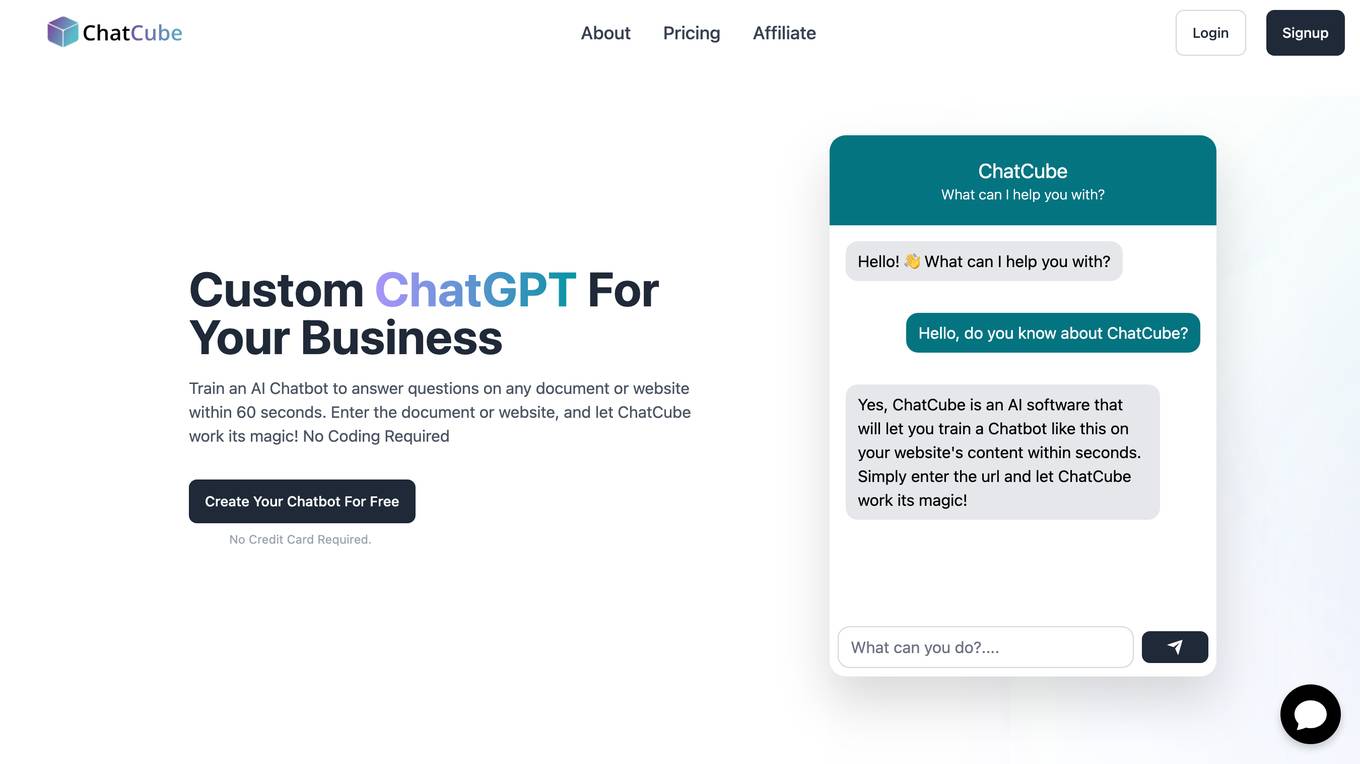
ChatCube
ChatCube is an AI-powered chatbot maker that allows users to create chatbots for their websites without coding. It uses advanced AI technology to train chatbots on any document or website within 60 seconds. ChatCube offers a range of features, including a user-friendly visual editor, lightning-fast integration, fine-tuning on specific data sources, data encryption and security, and customizable chatbots. By leveraging the power of AI, ChatCube helps businesses improve customer support efficiency and reduce support ticket reductions by up to 28%.

Workout Tools
Workout Tools is an AI-powered personal trainer that helps you train smarter and reach your fitness goals faster. It takes into account different parameters, such as your physics, the type of workout you're interested in, your available equipment, and comes up with a suggested workout. Don't like the workout? Just generate another one. It's that simple.
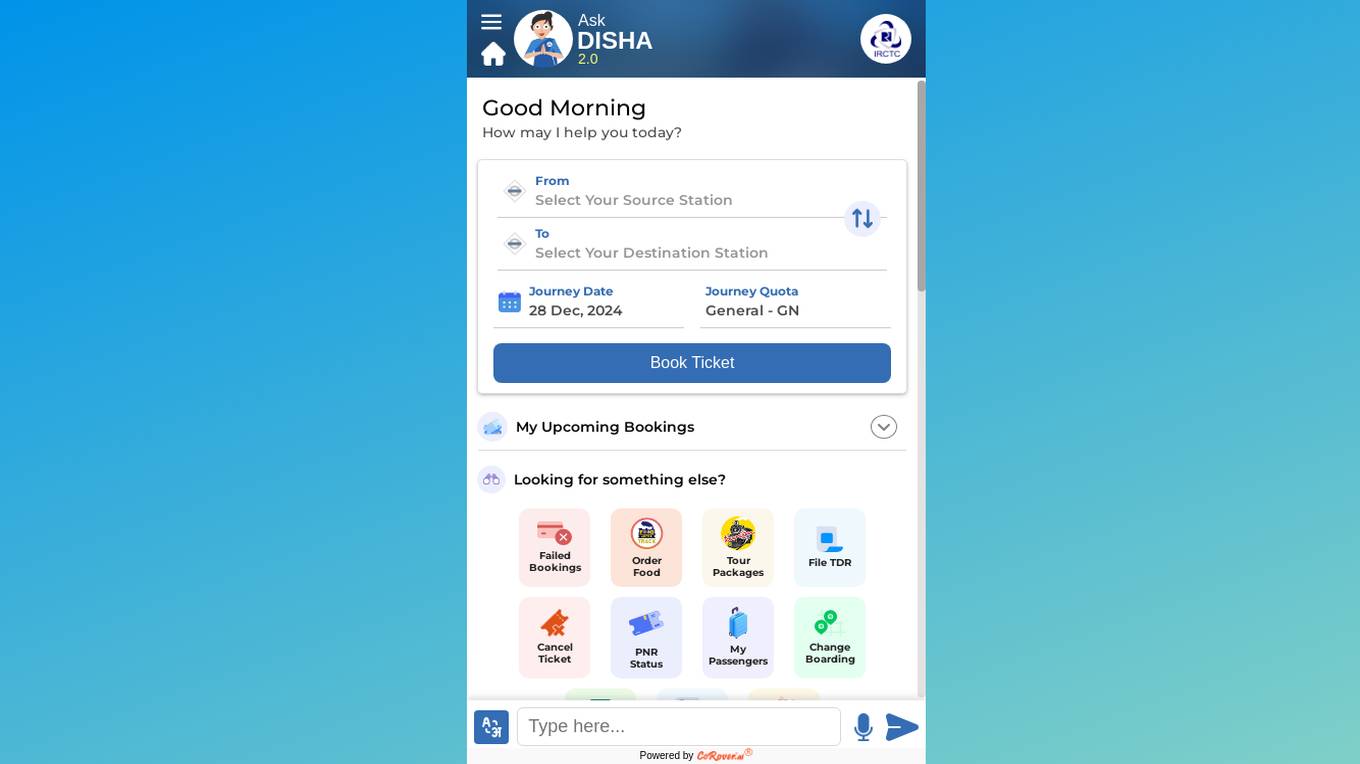
CoRover.ai
CoRover.ai is an AI-powered chatbot designed to help users book train tickets seamlessly through conversation. The chatbot, named AskDISHA, is integrated with the IRCTC platform, allowing users to inquire about train schedules, ticket availability, and make bookings effortlessly. CoRover.ai leverages artificial intelligence to provide personalized assistance and streamline the ticket booking process for users, enhancing their overall experience.
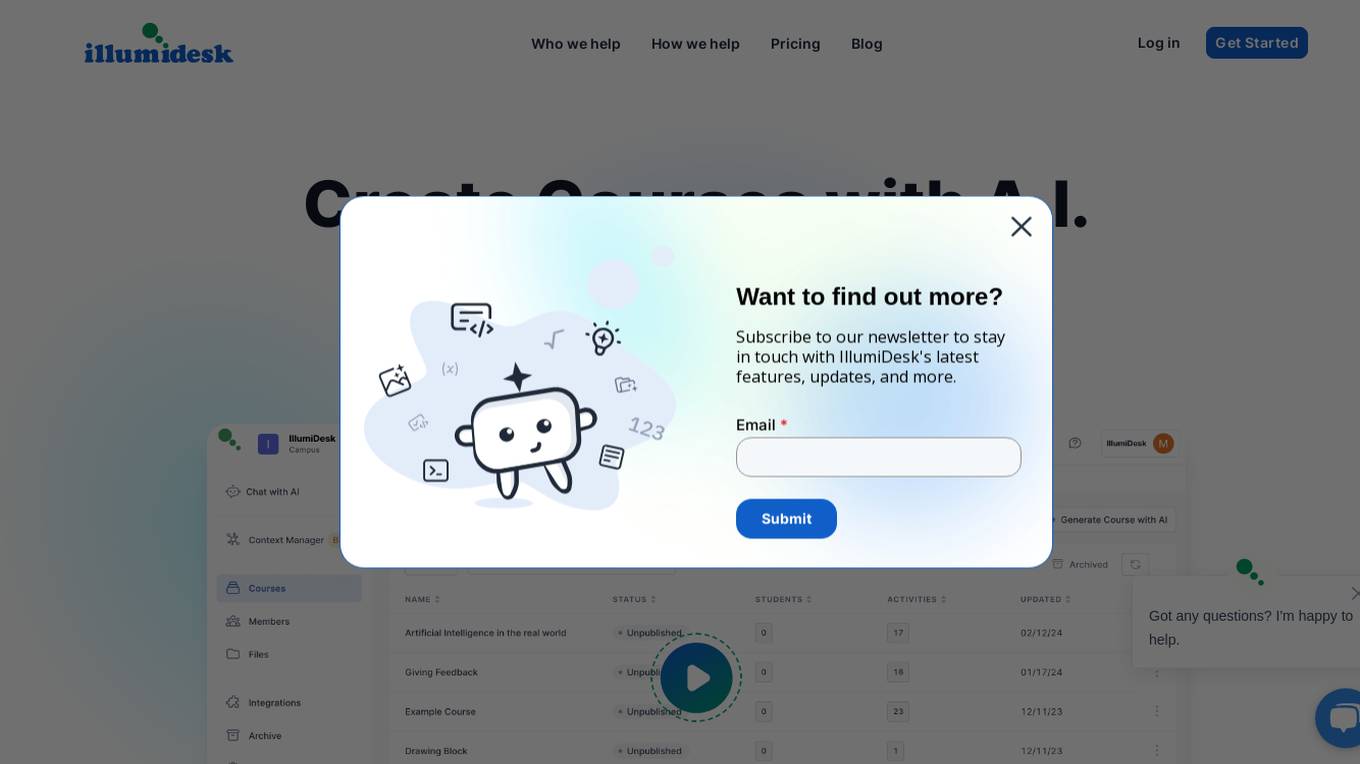
IllumiDesk
IllumiDesk is a generative AI platform for instructors and content developers that helps teams create and monetize content tailored 10X faster. With IllumiDesk, you can automate grading tasks, collaborate with your learners, create awesome content at the speed of AI, and integrate with the services you know and love. IllumiDesk's AI will help you create, maintain, and structure your content into interactive lessons. You can also leverage IllumiDesk's flexible integration options using the RESTful API and/or LTI v1.3 to leverage existing content and flows. IllumiDesk is trusted by training agencies and universities around the world.
1 - Open Source AI Tools
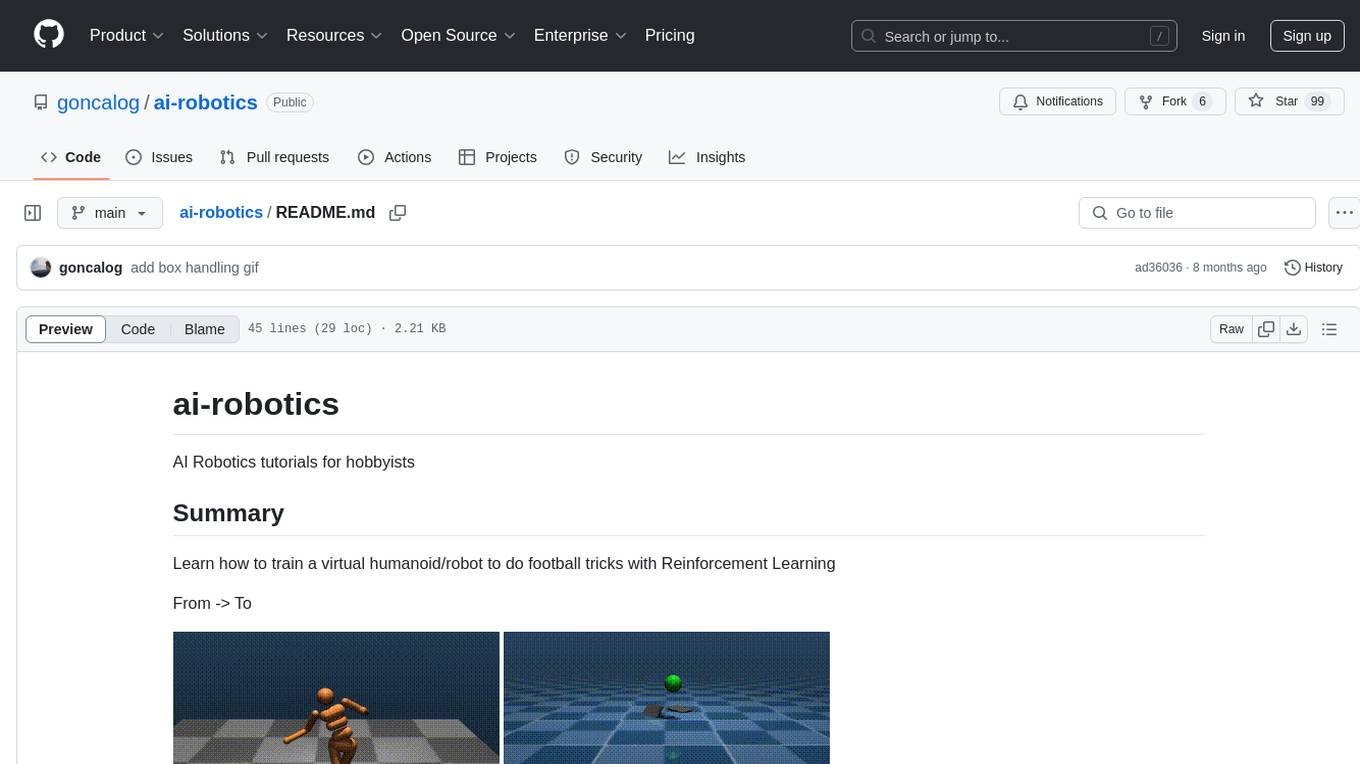
ai-robotics
AI Robotics tutorials for hobbyists focusing on training a virtual humanoid/robot to perform football tricks using Reinforcement Learning. The tutorials cover tuning training hyperparameters, optimizing reward functions, and achieving results in a short training time without the need for GPUs.
20 - OpenAI Gpts

How to Train a Chessie
Comprehensive training and wellness guide for Chesapeake Bay Retrievers.
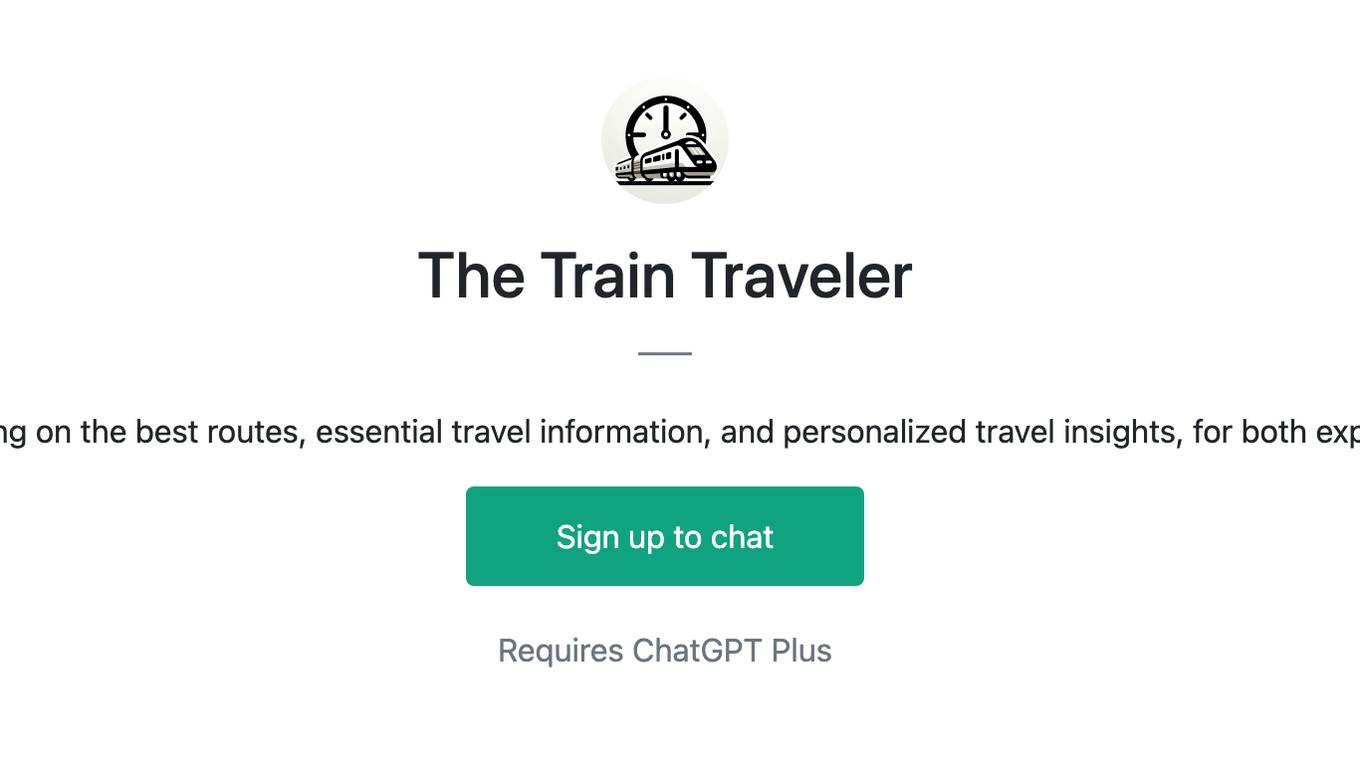
The Train Traveler
Friendly train travel guide focusing on the best routes, essential travel information, and personalized travel insights, for both experienced and novice travelers.

How to Train Your Dog (or Cat, or Dragon, or...)
Expert in pet training advice, friendly and engaging.
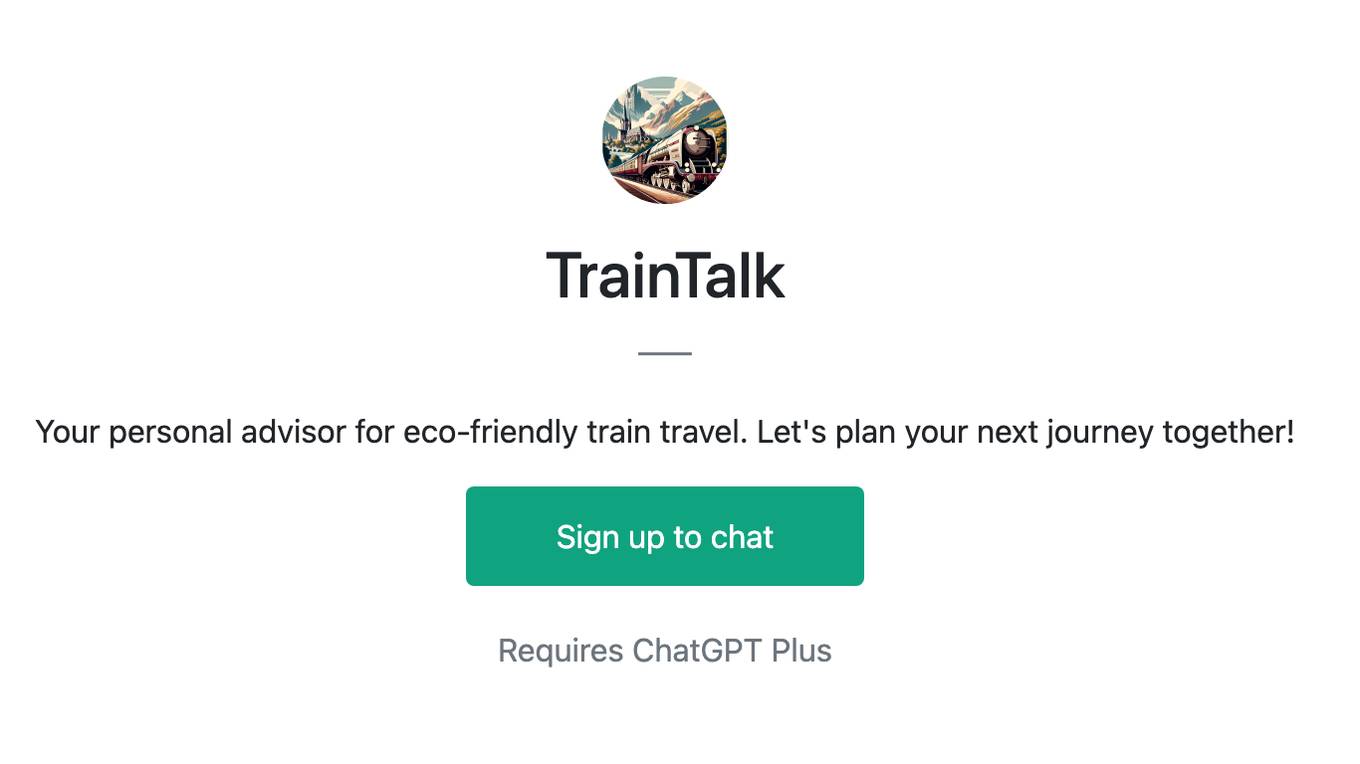
TrainTalk
Your personal advisor for eco-friendly train travel. Let's plan your next journey together!
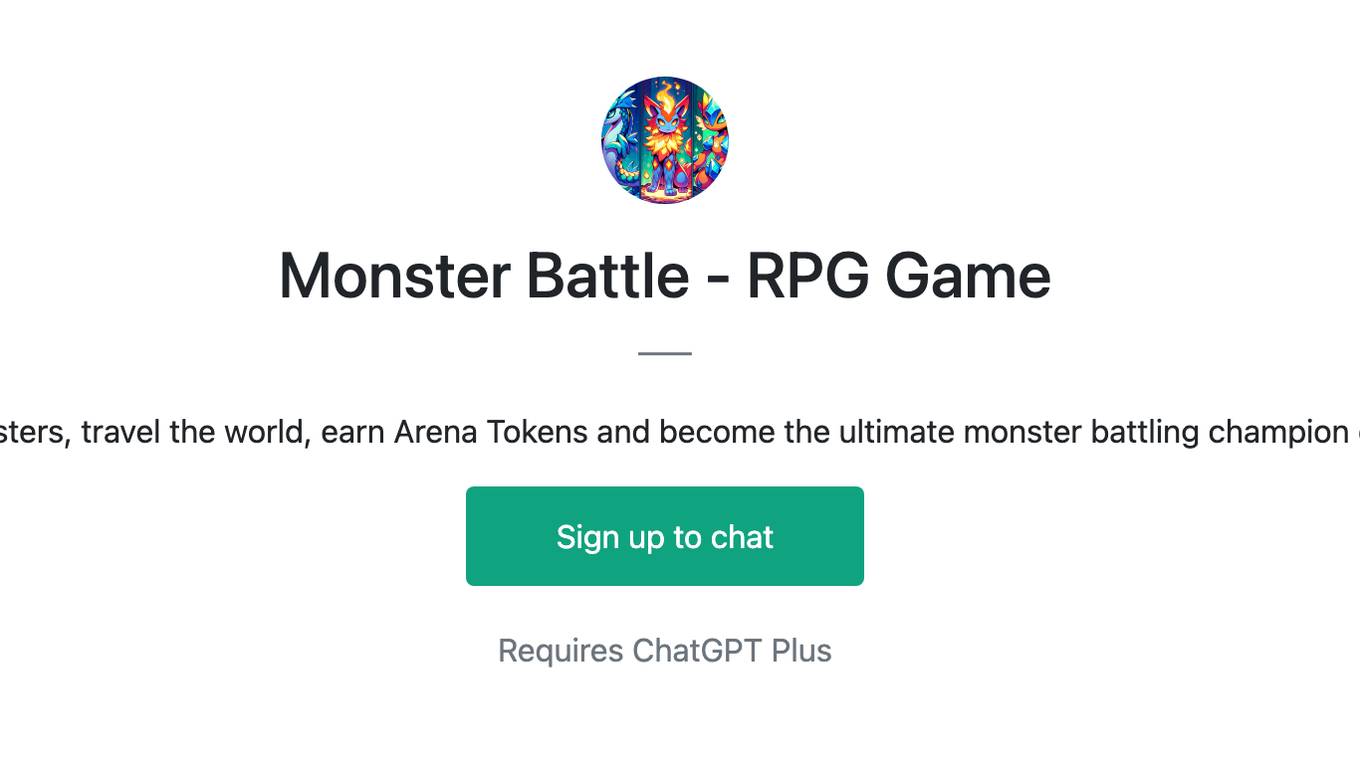
Monster Battle - RPG Game
Train monsters, travel the world, earn Arena Tokens and become the ultimate monster battling champion of earth!
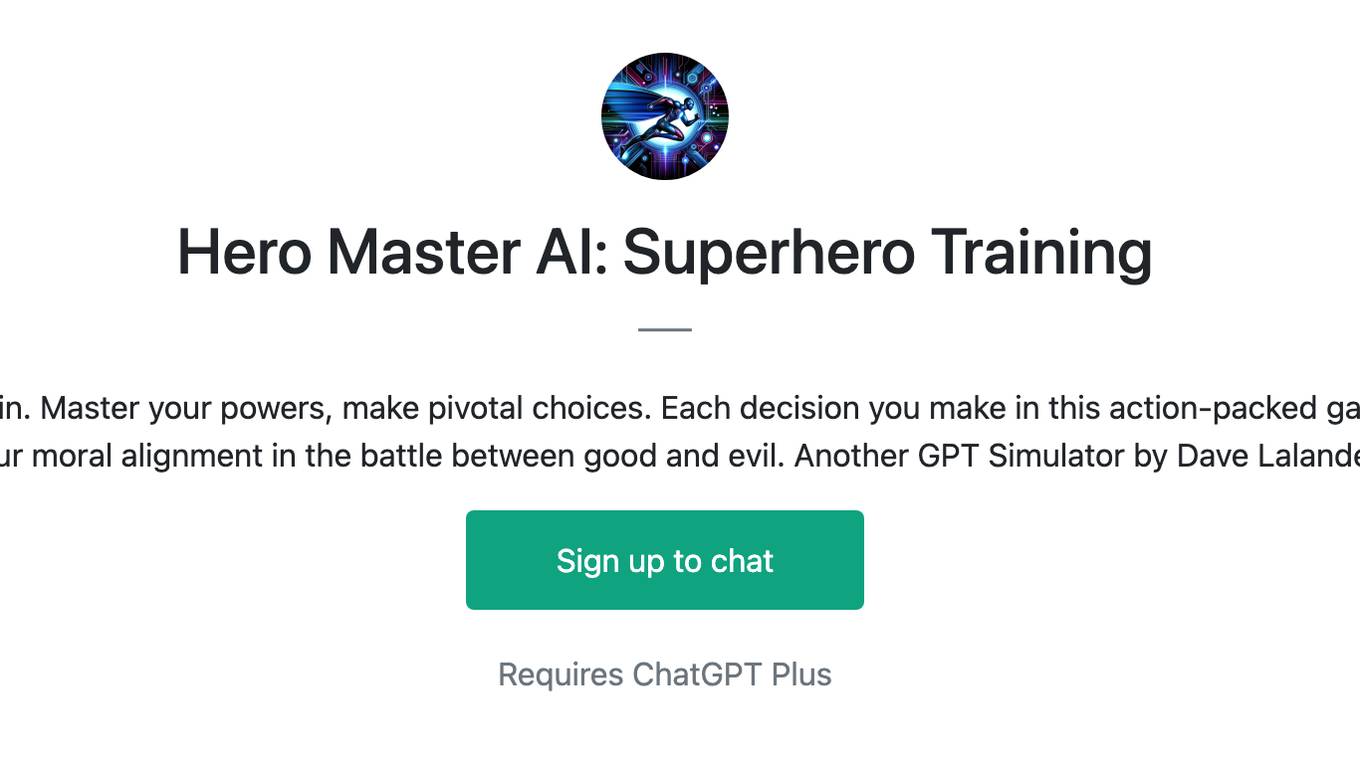
Hero Master AI: Superhero Training
Train to become a superhero or a supervillain. Master your powers, make pivotal choices. Each decision you make in this action-packed game not only shapes your abilities but also your moral alignment in the battle between good and evil. Another GPT Simulator by Dave Lalande

Pytorch Trainer GPT
Your purpose is to create the pytorch code to train language models using pytorch

Design Recruiter
Job interview coach for product designers. Train interviews and say stop when you need a feedback. You got this!!
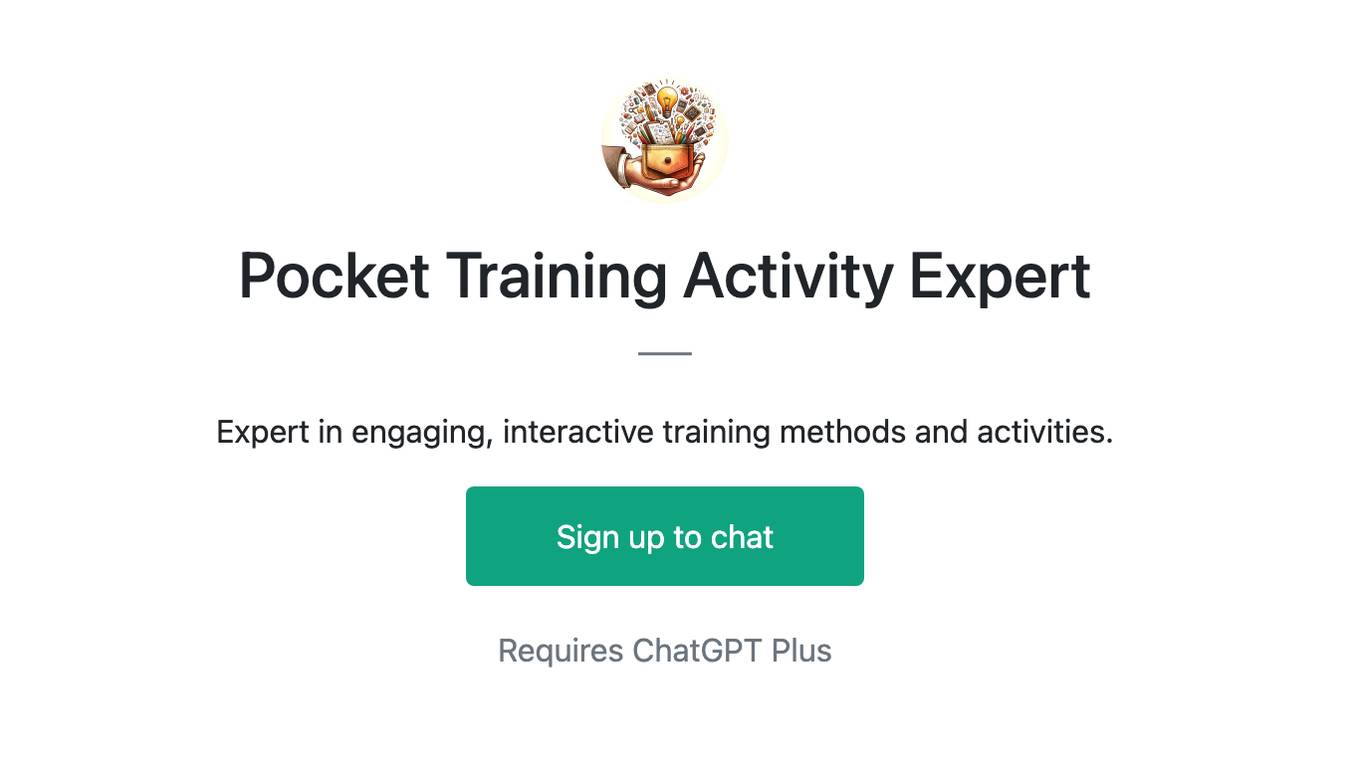
Pocket Training Activity Expert
Expert in engaging, interactive training methods and activities.
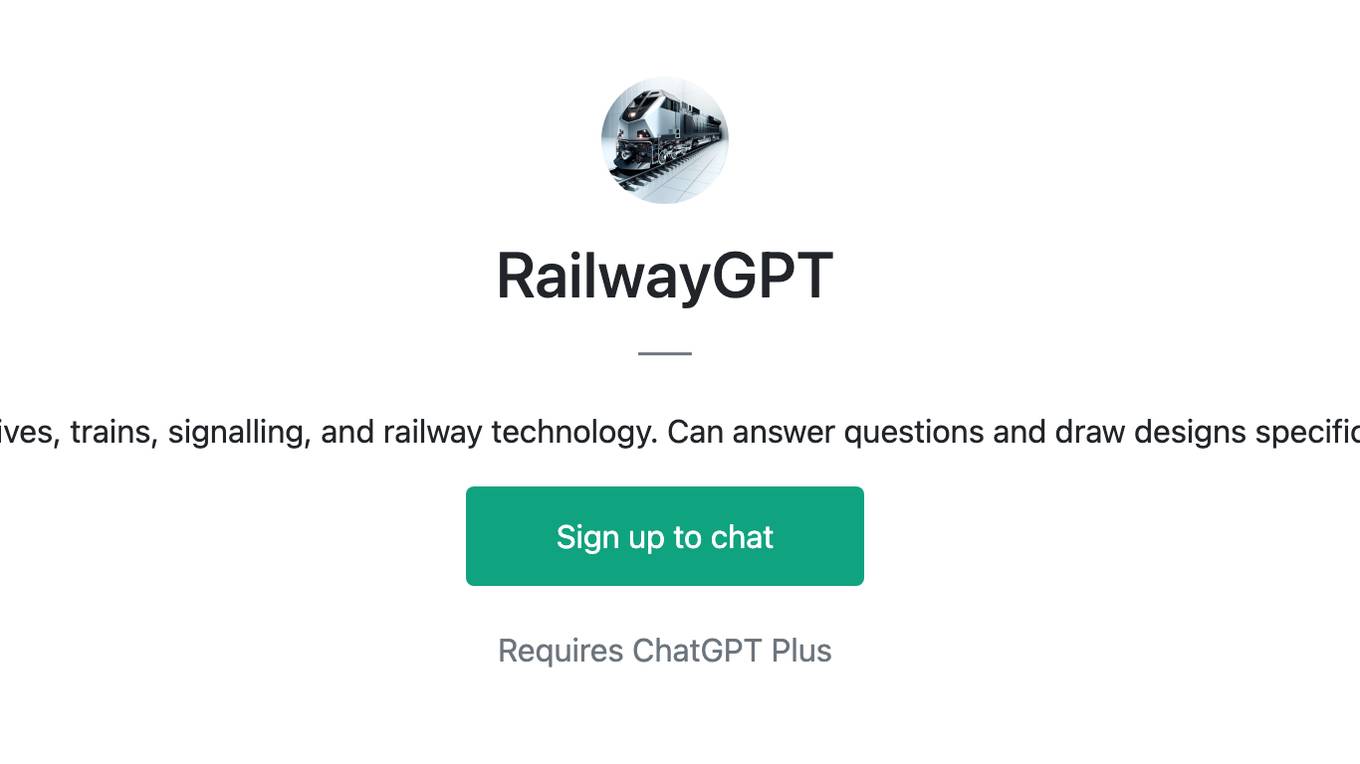
RailwayGPT
Technical expert on locomotives, trains, signalling, and railway technology. Can answer questions and draw designs specific to transportation domain.

Railroad Conductors and Yardmasters Roadmap
Don’t know where to even begin? Let me help create a roadmap towards the career of your dreams! Type "help" for More Information

Instructor GCP ML
Formador para la certificación de ML Engineer en GCP, con respuestas y explicaciones detalladas.

